第39章 VI(4)
"The specialist is much like other people engaged in lucrative business. He is apt to magnify his calling, to make much of any symptom which will bring a patient within range of his battery of remedies. I found a case in one of our medical journals, a couple of years ago, which illustrates what I mean. Dr. ___________ of Philadelphia, had a female patient with a crooked nose,--deviated septum, if our young scholars like that better. She was suffering from what the doctor called reflex headache. She had been to an oculist, who found that the trouble was in her eyes. She went from him to a gynecologist, who considered her headache as owing to causes for which his specialty had the remedies. How many more specialists would have appropriated her, if she had gone the rounds of them all, I dare not guess; but you remember the old story of the siege, in which each artisan proposed means of defence which be himself was ready to furnish. Then a shoemaker said, 'Hang your walls with new boots.'
"Human nature is the same with medical specialists as it was with ancient cordwainers, and it is too possible that a hungry practitioner may be warped by his interest in fastening on a patient who, as he persuades himself, comes under his medical jurisdiction.
The specialist has but one fang with which to seize and bold his prey, but that fang is a fearfully long and sharp canine. Being confined to a narrow field of observation and practice, he is apt to give much of his time to curious study, which may be magnifique, but is not exactly la guerre against the patient's malady. He divides and subdivides, and gets many varieties of diseases, in most respects similar. These he equips with new names, and thus we have those terrific nomenclatures which are enough to frighten the medical student, to say nothing of the sufferers staggering under this long catalogue of local infirmities. The 'old-fogy' doctor, who knows the family tendencies of his patient, who 'understands his constitution,' will often treat him better than the famous specialist, who sees him for the first time, and has to guess at many things 'the old doctor' knows from his previous experience with the same patient and the family to which he belongs.
"It is a great luxury to practise as a specialist in almost any class of diseases. The special practitioner has his own hours, hardly needs a night-bell, can have his residence out of the town in which he exercises his calling, in short, lives like a gentleman; while the hard-worked general practitioner submits to a servitude more exacting than that of the man who is employed in his stable or in his kitchen.
That is the kind of life I have made up my mind to."
The teaspoons tinkled all round the table. This was the usual sign of approbation, instead of the clapping of hands.
The young Doctor paused, and looked round among The Teacups. "I beg your pardon," he said, "for taking up so much of your time with medicine. It is a subject that a good many persons, especially ladies, take an interest in and have a curiosity about, but I have no right to turn this tea-table into a lecture platform."
"We should like to hear you talk longer about it," said the English Annex. "One of us has thought of devoting herself to the practice of medicine. Would you lecture to us; if you were a professor in one of the great medical schools?"
"Lecture to students of your sex? Why not, I should like to know? I don't think it is the calling for which the average woman is especially adapted, but my teacher got a part of his medical education from a lady, Madame Lachapelle; and I don't see why, if one can learn from a woman, he may not teach a woman, if he knows enough."
"We all like a little medical talk now and then," said Number Five, "and we are much obliged to you for your discourse. You are specialist enough to take care of a sprained ankle, I suppose, are you not?"
"I hope I should be equal to that emergency," answered the young Doctor; "but I trust you are not suffering from any such accident?"
"No," said Number Five, "but there is no telling what may happen. I might slip, and get a sprain or break a sinew, or something, and I should like to know that there is a practitioner at hand to take care of my injury. I think I would risk myself in your bands, although you are not a specialist. Would you venture to take charge of the case?"
"Ah, my dear lady," he answered gallantly, "the risk would be in the other direction. I am afraid it would be safer for your doctor if he were an older man than I am."
This is the first clearly, indisputably sentimental outbreak which has happened in conversation at our table. I tremble to think what will come of it; for we have several inflammable elements in our circle, and a spark like this is liable to light on any one or two of them.
I was not sorry that this medical episode came in to vary the usual course of talk at our table. I like to have one--of an intelligent company, who knows anything thoroughly, hold the floor for a time, and discourse upon the subject which chiefly engages his daily thoughts and furnishes his habitual occupation. It is a privilege to meet such a person now and then, and let him have his full swing.